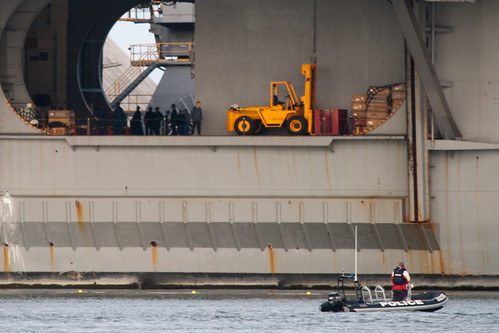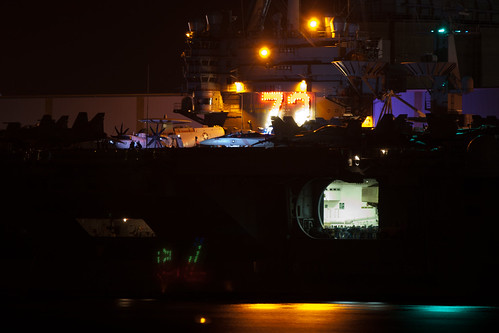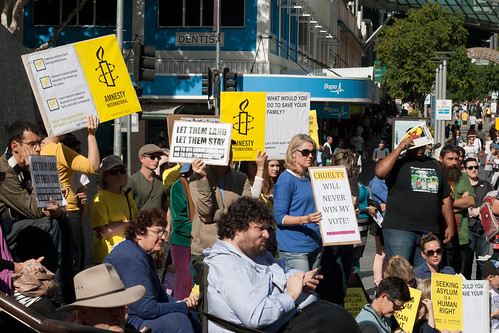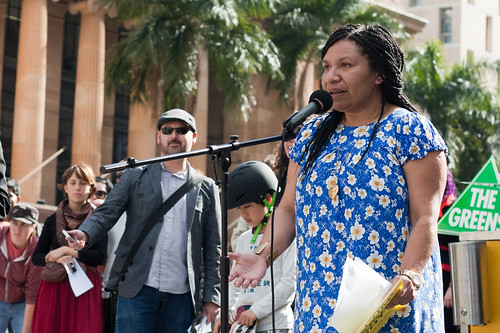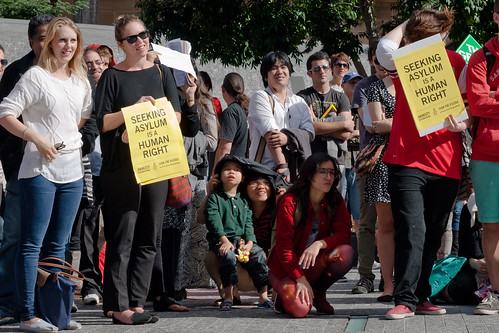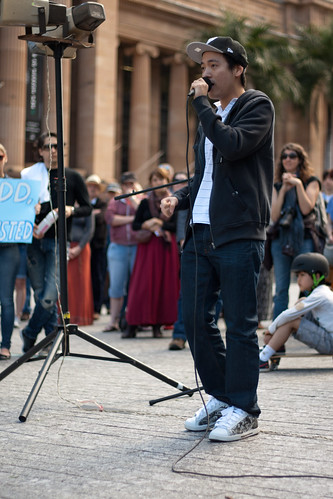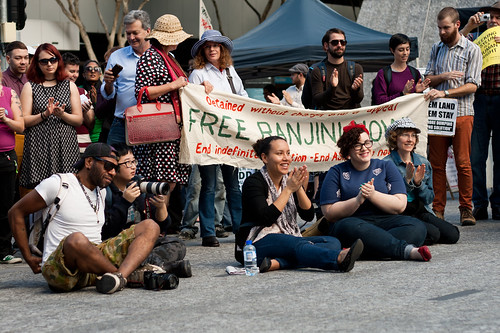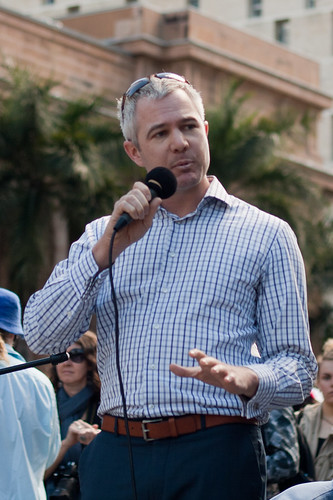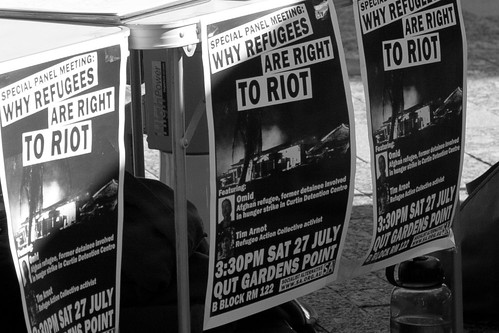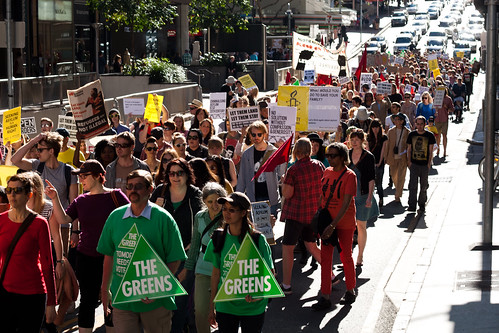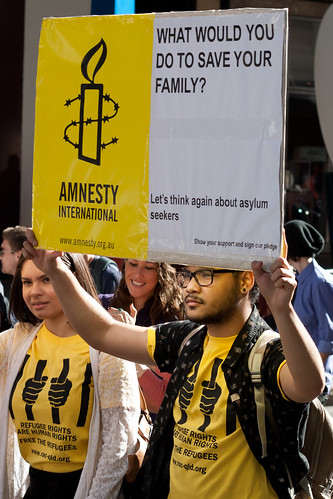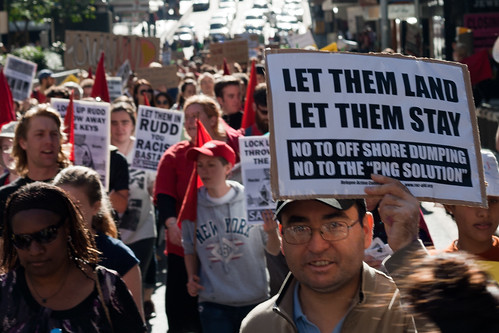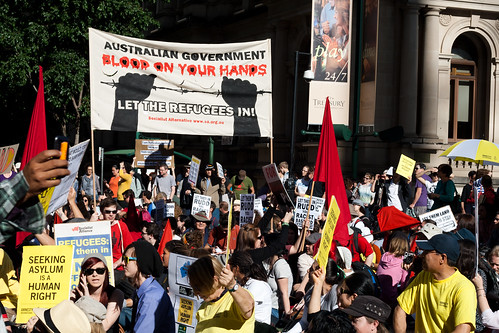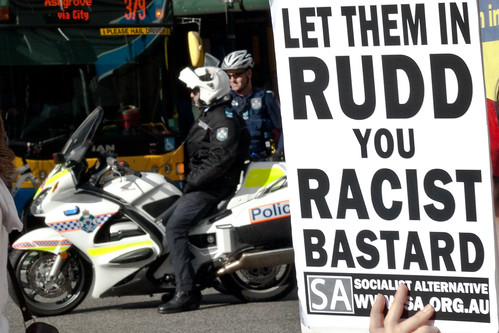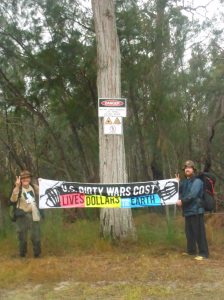Graeme Dunstan’s Walk On Statement
Talisman Saber 2013
My name is Graeme Dunstan. I am a grey nomad, 71 years old. My vehicle is Peacebus.com, which is both a battered old van and a website where I blog Peacebus protest actions.
It is my intention to trespass onto the Shoalwater Bay Military Area and, by creative nonviolent actions, do the best I can to disrupt the military exercises, demonstrate resistance to the culture of war and preparation for war and create a counter narrative to the propaganda of the military.
I note that after 13 years of unwanted, bloody, costly and futile war in Afghanistan and Iraq that there has been no genuine debate about the cause, conduct or like benefit of the wars in the Parliament nor has there been any consultation with the Australian people.
These wars have never been popular, indeed hundreds of thousands of citizens came out in the streets in opposition to the invasion of Iraq in 2003 only to be ignored. As the former Senator pointed out, that polls indicate that over the years something like 72% of Australian people wanted our troops out of Afghanistan but 92% of elected representatives have insisted they stay.
The terrible truth is that our politicians are more loyal to the demands of the US Embassy in Canberra than they are to the Australian people.
And the political parties and the corporate media conspire to keep the wars off the political agenda.
What can a just man do?
Well I choose to act justly by challenging the war machine and acting for peace.
In the face of endless US wars and cringing obeisance to the US military alliance by Australian politicians such as PM Rudd, I choose to stand tall and be seen as an honourable elder, demonstrating courage and setting a good example for younger men and women.
For the benefit of all beings, large and small, near and far, seen and unseen, born and yet to be born, I choose to be a peacemaker in this time of perpetual war.
End the lies, I say. End the wars. End the US military alliance.
Graeme Dunstan
_________________________________
Greg Rolles’ Walk On Statement
Talisman Saber 2013
Today I have entered the Shoalwater Bay Area in protest against the Talisman Sabre War Rehearsals.
My aim is to disrupt the Talisman Sabre Exercises. I am doing this to demonstrate my commitment to nonviolent confrontation of injustice.
The misnomer of Australia and the US being a ‘defence force’, needs to be challenged. Since at least 2001, the Australian and US military forces have taken and continue to take many innocent lives and waste money that could be used in, amongst others, our ailing education system. This is a theft of common treasure squandered in the pursuit of global power, which has demonstrated the opposite of its desired effect. The Middle East and Eastern Asia are now much more unstable and much worse places to live than they were before 2001. Our military men and women have not been used to help people, but to destroy lives, families, cities and countries.
As a Christian, as a teacher with a responsibility to our children and as a citizen of the globe, I am morally compelled to take direct action against this injustice.
I am doing this in protest of the US/Australian Military Alliance. I am a Secondary School history teacher. The history peddled by our political leaders of Australia being saved by the USA in 1942 is not an accurate history, as demonstrated by the statement made by Peter Stanley about the “Battle for Australia” Day proclamation in 2008.
I am acting outside of the law for an independent and peaceful Australia. I believe that as a nation we can do better.
We can do better than follow the US into another Dirty War. The Afghan War has cost us 40 Australian Soldiers, 268 wounded and at least 15 suicides this year by veterans. This is not to mention the millions of civilian deaths in Iraq and Afghanistan, the $31 Billion and severe environmental impacts of these wars.
We can do better than buying our Allies Joint Strike Fighters at an estimated cost of nearly $1.4 Billion. This is money that could have contributed to the Gonski review instead of being stripped from our universities.
We can do better than cooperating with the US in these War Rehearsals. Australia has the opportunity to be a genuine leader in cooperation and peace in the South Pacific and South East Asian blocs, to build stronger ties with our large Northern neighbour, China. We should have games focused on developing ties with our region and building peace, rather than remaining a part of the expensive, wasteful and destructive American War Machine.
I want to teach our children the ways of peace and cooperation, not war and death. I have worked with the kids who will be our future and for their sakes, we need to do better now.
Greg Rolles



